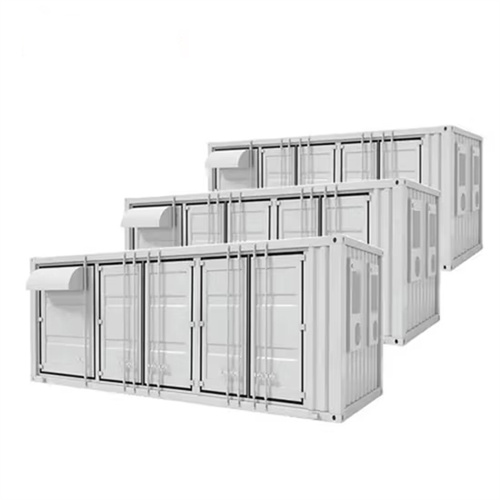About What is the best cold resistance for photovoltaic panels
If you would like a few key stats to take home, here is a quick look at solar panel temperature range by the numbers.Ideal temperature for solar panel efficiency: ~77°F; Minimum temperature for solar panels: -40°F; Maximum temperature for solar panels: +185°F; On a solar deep-dive or looking to get solar panels installed?.
If you would like a few key stats to take home, here is a quick look at solar panel temperature range by the numbers.Ideal temperature for solar panel efficiency: ~77°F; Minimum temperature for solar panels: -40°F; Maximum temperature for solar panels: +185°F; On a solar deep-dive or looking to get solar panels installed?.
According to the manufacture standards, 25 °C or 77 °F temperature indicates the peak of the optimum temperature range of photovoltaic solar panels. It is when solar photovoltaic cells are able to absorb sunlight with maximum efficiency and when we can expect them to perform the best. The solar panel output fluctuates in real life conditions.
We explain how sunlight, temperature, wind, humidity, snow, and ice can impact solar panel efficiency. Generally, sunny, clear days, moderate temperatures, and the absence of extreme weather conditions will be best to maximize efficiency, but it’s not always as simple as that.
This article examines how the efficiency of a solar photovoltaic (PV) panel is affected by the ambient temperature. You’ll learn how to predict the power output of a PV panel at different temperatures and examine some real-world engineering applications used to control the temperature of PV panels.
What Are the Best Solar Panels for Colder Climates? If you think that solar panels only work with bright sunshine, you're wrong. Here's how you can still use solar in the winter with maximum results!
As the photovoltaic (PV) industry continues to evolve, advancements in What is the best cold resistance for photovoltaic panels have become critical to optimizing the utilization of renewable energy sources. From innovative battery technologies to intelligent energy management systems, these solutions are transforming the way we store and distribute solar-generated electricity.
When you're looking for the latest and most efficient What is the best cold resistance for photovoltaic panels for your PV project, our website offers a comprehensive selection of cutting-edge products designed to meet your specific requirements. Whether you're a renewable energy developer, utility company, or commercial enterprise looking to reduce your carbon footprint, we have the solutions to help you harness the full potential of solar energy.
By interacting with our online customer service, you'll gain a deep understanding of the various What is the best cold resistance for photovoltaic panels featured in our extensive catalog, such as high-efficiency storage batteries and intelligent energy management systems, and how they work together to provide a stable and reliable power supply for your PV projects.
6 FAQs about [What is the best cold resistance for photovoltaic panels ]
Are solar panels rated to operate in a wide temperature range?
Although extreme conditions will affect solar panel performance efficiency, solar panels are rated to operate in a very wide temperature range. Designed to reflect real-world conditions, most solar panels have an operating temperature range wide enough to cover every single day of your system’s multi-decade lifetime.
Are solar panels temperature sensitive?
Yes, solar panels are temperature sensitive. Higher temperatures can negatively impact their performance and reduce their efficiency. As the temperature rises, the output voltage of solar panels decreases, leading to a decrease in power generation. What is the effect of temperature on electrical parameters of solar cells?
Do solar panels work better in hot or cold weather?
No, hotter temperatures are not better for solar panels. In fact, solar panels perform better in moderate temperatures rather than extremely hot conditions. Higher temperatures can cause a decrease in their efficiency, leading to reduced power output. Why do solar panels work better in cold?
What temperature should a solar panel be at?
According to the manufacture standards, 25 °C or 77 °F temperature indicates the peak of the optimum temperature range of photovoltaic solar panels. It is when solar photovoltaic cells are able to absorb sunlight with maximum efficiency and when we can expect them to perform the best. The solar panel output fluctuates in real life conditions.
What is the temperature coefficient of a solar panel?
The temperature coefficient of solar panels refers to the rate at which the performance of a solar panel changes in response to variations with temperature. It is a measure of how the electrical characteristics of the solar panel, such as voltage and power output, are affected by temperature changes.
Does cold weather affect solar panel efficiency?
On the other hand, cold temperatures can initially boost the conductivity and voltage output of solar panels, but prolonged exposure to extreme cold can result in decreased sunlight availability, increased resistive losses, and reduced panel efficiency. To mitigate the effects of temperature on solar panel efficiency, certain measures can be taken.
Related Contents
- What is the best low temperature resistance for photovoltaic panels
- What is the best wind resistance level for photovoltaic panels
- What fruits are best to grow under photovoltaic panels
- What is the best voltage for photovoltaic panels in a house
- What is the best DC voltage for photovoltaic panels
- What is the best wattage for photovoltaic panels
- What are the best sizes for photovoltaic panels
- What material is best for photovoltaic panels
- What cable is best for connecting photovoltaic panels
- What brand of 450w photovoltaic panels is best
- What kind of wire is best for connecting photovoltaic panels to lights
- What kind of photovoltaic panels are best to buy


